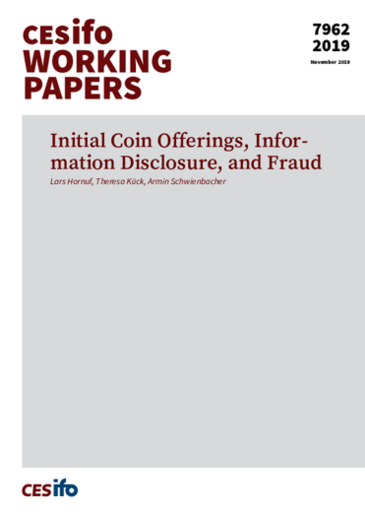Die Forschungsarbeit von Lars Hornuf und Theresa Kück in Zusammenarbeit mit Armin Schwienbacher (SKEMA Business School) über "Initial Coin Offerings, Information Disclosure, and Fraud" ist nun als Arbeitspapier verfügbar. In der Arbeit kommen sie zu den Ergebnissen, dass in einigen Fällen bei ICOs die Offenlegung auf der Plattform Github keine gute Idee ist. Zudem hatte Gary Becker Recht, dass Stehlen nur Sinn macht, wenn es um beträchtliche Geldbeträge geht.
Das CESifo Working Paper No. 7962 finden sie hier.
Im Folgenden finden Sie das Abstract des Arbeitspapiers:
We study the extent of fraud in initial coin offerings (ICOs), and whether information disclosure prior to the issuance predicts fraud. We document different types of fraud, and that fraudulent ICOs are on average much larger than the sample average. Issuers that disclose their code on GitHub are more likely to be targeted by phishing and hacker activities, which suggests that there are risks related to disclosing the code. Generally, we find it extremely difficult to predict fraud with the information available at the time of issuance. This calls for the need to install a third-party that certifies the quality of the issuers, such as specialized platforms, or the engagement of institutional investors and venture capital funds that can perform a due diligence and thus verify the quality of the project.


